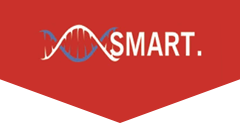Abstract
COVID-19 pandemic and the lockdown declared due to this, has brought a robust stagnation in different sectors of human life. When the world is facing delayed development and crisis in economic sectors, job markets, work culture, etc., educational realm has also undergone a massive change within just few months. In this era of new normal, not only the teachinglearning system is forced to be shifted to online platform; but also the students who were supposed to complete their college/ university degrees this year are still in a stagnated state. Along with the present pandemic environment stress, the uncertainties relating to their future aspirations have become an added burden for these students’ mental health. This study has focused on the present mental health status of these final year students of undergraduate (UG) level (groups separated as higher education and job aspirants) and the coping styles adopted by them to combat environmental uncertainties in relation to their psychological capital. The study, thus, investigated difference in psychological capital, present mental status and adopted coping style between final year UG students aspiring for higher studies and job. The data was collected through online platform and after proper screening, and analysed with the help of descriptive and multivariate statistical techniques. Final results observed no particular difference in psychological capital between the two groups of final year UG students. However, difference was observed in their adopted coping strategies and present mental health status. As the psychological capital shows no difference, the difference observed in mental health condition and coping, hence, could be attributed to the stress and insecurities culminating from pandemic crisis.
Recommended Citation
Majumdar, Anindita; Sarkar, Kriti; and Ghosh, Abhinita
(2024)
"Exploring Coping Styles & Present Mental Health Status of Final Year Undergraduate Students in Relation to their Psychological Capital amidst uncertainties of COVID,"
International Journal of English Learning & Teaching Skills (IJELTS): Vol. 3:
Iss.
2, Article 1.
Available at:
https://research.smartsociety.org/ijelts/vol3/iss2/1

